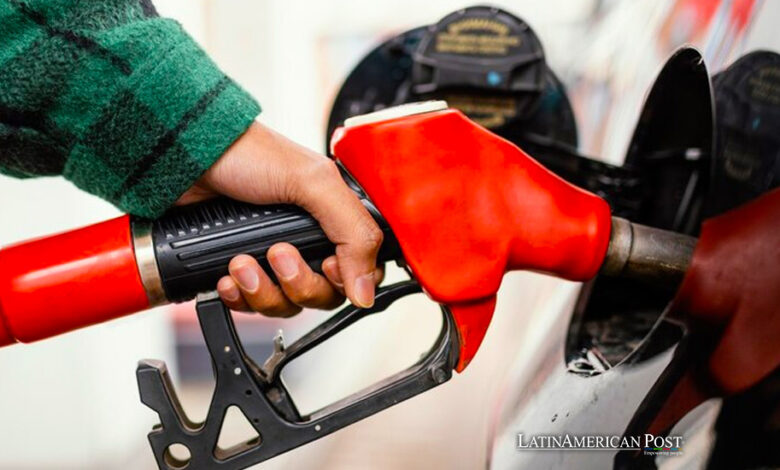Fuel Consumption Decline in Argentina Amid Soaring Prices Under New Government Policy Sparks Economic Concerns and Consumer Shifts

As fuel prices skyrocketed in Argentina since December, consumption plummeted by nearly 10% in January, prompting a shift in consumer behavior and raising concerns about economic repercussions. The policies of Javier Milei’s administration, aimed at aligning fuel prices with international markets, have led to a significant surge in fuel costs, outpacing inflation rates and impacting various sectors of the economy.
Decline in Fuel Consumption: Impact of Price Hikes
Fuel consumption in Argentina has witnessed a sharp decline following substantial price hikes since December, signaling significant changes in consumer behavior amidst a new government policy under Javier Milei’s administration. As fuel prices skyrocketed, consumption plummeted by nearly 10% in January, prompting a shift in consumer behavior and raising concerns about economic repercussions.
According to various industry sources consulted by EFE, demand for fuel at gas stations dropped by almost 10% in January, with only a slight increase noted by YPF, the country’s leading oil producer and fuel retailer. The downward trend in consumption had already begun in December, with a 7.8% decrease compared to November, as reported by data from the Argentine Institute of Energy ‘General Mosconi.’ Amidst skyrocketing inflation and declining purchasing power in Argentina, consumers scaled back their fuel purchases following substantial price jumps in December, January, and early February.
Isabelino Rodríguez, President of the Confederation of Hydrocarbon and Related Trade Entities of Argentina (Cecha) noted a shift in consumption patterns, stating, “The first noticeable change is a shift in consumption habits from ‘premium’ to regular gasoline. Additionally, petroleum companies with higher selling prices are experiencing a more pronounced decline in sales volumes.”
Rising Gasoline Prices and Policy Impact
Currently, ‘super’ gasoline (the most economical option) is priced at 744 pesos per liter at YPF service stations in Buenos Aires. Until November 2023, the price of ‘super’ gasoline in the capital had risen by 107% for the year, trailing behind the 160.9% inflation rate accumulated up to that month. However, December saw a monthly increase of 77.8%, followed by a 26.4% rise in January, driven by the new Milei administration’s policy of freeing suppressed prices and aligning fuel prices more closely with international markets, aiming for increased profitability for sector companies.
Additionally, a 6.43% increase on February 1st, resulting from the government’s decision to update certain fuel taxes delayed by the previous administration, is expected to lead to further price hikes between March and May. In this scenario, the price of gasoline has surged by 139.2% since December, far outpacing the already high inflation rate, which stood at 25.5% in December according to official data and 19.4% in January based on private estimates.
Rodríguez’s Insight on Consumer Behavior
Rodríguez remarked, “Previously, a liter of fuel cost the same as a liter of bottled water. Now, while the relative price has been restored, people’s incomes have not. Hence, there’s a decline in demand, which we expect to continue to grow for now.” Fuel prices heavily impact transportation costs, thermal electricity generation, agriculture logistics, and other sectors, significantly influencing overall economic prices.
For years, fuel prices in Argentina have been heavily regulated. The South American country imports about 30% of its domestic gasoline and diesel demand, covering the rest with domestically produced and refined crude oil. However, the new government, which took office in December, opted to end the so-called ‘criollo barrel,’ a subsidized crude oil price for the domestic market set at $58 compared to the current Brent barrel price of around $79. This move aimed to remove artificial price controls on fuels.
Also read: Illegal Mining Ravages Ecuador’s Amazon as Evidenced in a Dire Increase in Deforestation
The policy outlined by the new administration now seeks to align fuel prices with import values, which industry sources estimate to be between $1 and $1.20 per liter. Consequently, there is still room for fuel prices to rise further within this framework. However, this value won’t be fixed as the ‘import parity’ can fluctuate depending on international oil prices and the exchange rate in Argentina. This situation has sparked concerns about the economic impact of the surge in fuel costs and prompted a reevaluation of consumer spending habits in the country.





